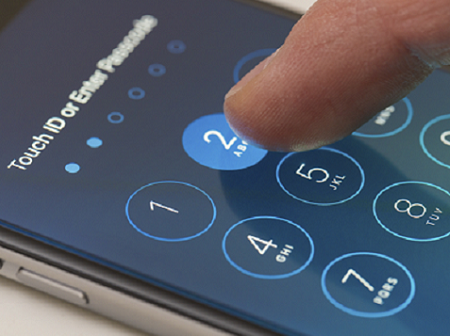FBI Aims To Crack iPhone Without Apple, Cancels Court DateFBI Aims To Crack iPhone Without Apple, Cancels Court Date
The FBI may have just found a way to access an encrypted iPhone, it said in a March 21 legal filing to cancel its court date with Apple, stating that the agency will report back April 5.


iPhone Encryption: 5 Ways It's Changed Over Time
iPhone Encryption: 5 Ways It's Changed Over Time (Click image for larger view and slideshow.)
The FBI may not need Apple's help after all.
The day before the US government was set to appear in a federal courtroom with Apple to begin disputing an encryption case that has gained national attention and political gravity, government lawyers filed an ex parte application asking that the March 22 court date be canceled.
"On Sunday, March 20, 2016, an outside party demonstrated to the FBI a possible method for unlocking [Syed Rizwan Farook's] iPhone," the government stated in court papers, referring to the one of the shooters in the 2015 San Bernardino terror attack.
"Testing is required to determine whether it is a viable method that will not compromise data on Farook's iPhone," according to the papers. "If the method is viable, it should eliminate the need for the assistance from [Apple] set forth in the All Writs Act Order in this case."
The government added that since it obtained Farook's phone on Dec. 15, the FBI has been working to gain access to it. Its agents didn't stop once it decided to sue Apple.
"The FBI did not cease its efforts after this litigation began," according to the court documents. "As the FBI continued to conduct its own research, and as a result of the worldwide publicity and attention on this case, others outside the U.S. government have continued to contact the U.S. government offering avenues of possible research."
The development brought another bizarre twist to the FBI's fight with Apple, which has tested the limits of powers the government needs to fight terrorism against the desire of people to keep their communications private.
Despite the reprieve, the debate continues.

Are you prepared for a new world of enterprise mobility? Attend the Wireless & Mobility Track at Interop Las Vegas, May 2-6. Register now!
Edward Snowden, the NSA whistleblower and now director of Freedom of the Press, has been among a vocal contingent suggesting for many weeks now that the FBI could access Farook's iPhone if it wanted to, but was instead using the case to set precedent.
"Every credible expert knew there were alternative means. That #FBI went so far on so little demonstrated a disregard of facts: bad faith," Snowden Tweeted March 21.
It's hard not to read tonight's events as permanently damaging the credibility of #FBI claims on encryption. This was basic pre-trial work.
— Edward Snowden (@Snowden) March 22, 2016
Snowden quickly added, "Reporters: Look back on those first two days of reporting based on #FBI claims. They exploited trust in pursuit of precedent."
"I'm not surprised at all that the FBI had at its disposal the ability to decrypt this iPhone," Ezra Gottheil, principal analyst with Technology Business Research, told Information Week.
Gottheil added:
"This was an attempt to set a precedent, using a case that was their most favorite case. It was emotional, Farook is dead, so you can't make reasonable claims about privacy. And it wasn't even his phone -- his employer owned it. … So, it may have been that the procedure was difficult and onerous and they decided they'd prefer it if the vendor would just take care of that for them, and they wanted to set a precedent that could benefit other [law enforcement agencies] in the future."
Apple CEO Tim Cook addressed the issue during a March 21 press event to introduce new products.
"We need to decide as a nation how much power the government should have over our data, and over our privacy," he said. "We believe strongly that we have a responsibility to help you protect your data and protect your privacy. […] We owe it to our customers and we owe it to our country. […] We will not shrink from this responsibility."
The government said in its court filing this week that it will file a status report with the court by April 5.
TBR's Gottheil suspects the report will conclude that the FBI has successfully accessed the phone.
"Where we go then is probably, 'We'd like legislation,'" said Gottheil. "Silicon Valley will probably propose something. Or else negate whatever the FBI asks for."

Read more about:
2016About the Author
You May Also Like






